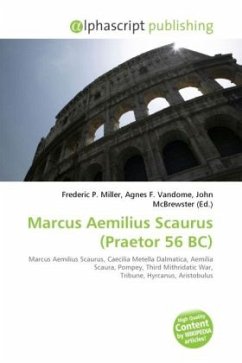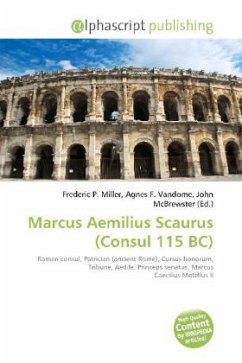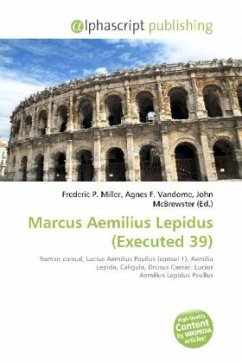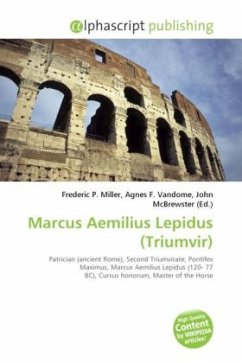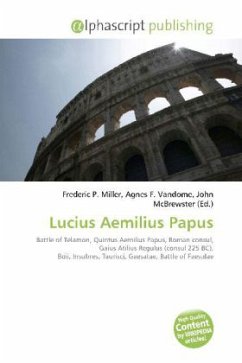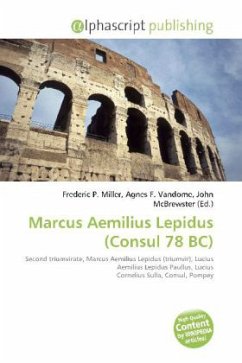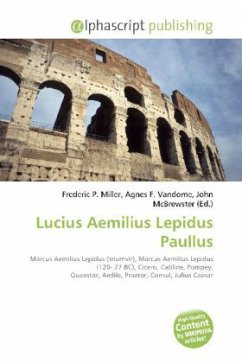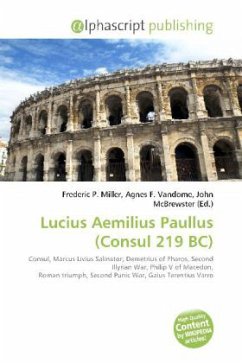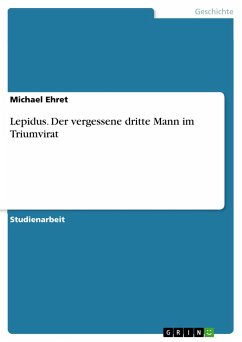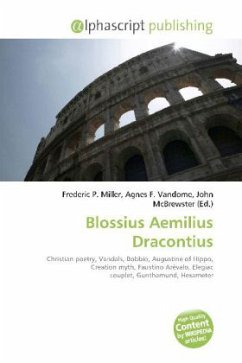
Blossius Aemilius Dracontius
Versandkostenfrei!
Versandfertig in 6-10 Tagen
26,99 €
inkl. MwSt.

PAYBACK Punkte
13 °P sammeln!
Please note that the content of this book primarily consists of articles available from Wikipedia or other free sources online. Blossius Aemilius Dracontius (c.455-c.505) of Carthage (according to the early tradition, of Spanish origin), Christian poet, flourished in the latter part of the 5th century. He belonged to a family of land proprietors, and practiced as an advocate in his native place. After the conquest of the country by the Vandals, Dracontius was at first allowed to retain possession of his estates, but was subsequently deprived of his property and thrown into prison by the Vandal...
Please note that the content of this book primarily consists of articles available from Wikipedia or other free sources online. Blossius Aemilius Dracontius (c.455-c.505) of Carthage (according to the early tradition, of Spanish origin), Christian poet, flourished in the latter part of the 5th century. He belonged to a family of land proprietors, and practiced as an advocate in his native place. After the conquest of the country by the Vandals, Dracontius was at first allowed to retain possession of his estates, but was subsequently deprived of his property and thrown into prison by the Vandal king, whose triumphs he had omitted to celebrate, while he had written a panegyric on a foreign and hostile ruler. He subsequently addressed am elegiac poem to the king, asking pardon. and pleading for release. The result is not known, but it is supposed that Dracontius obtained his liberty and migrated to northern Italy in search of peace and quietness. This is consistent with the discovery at Bobbio of a 15th-century MS., now in the Museo Borbonico at Naples, containing a number of poems by Dracontius (the Carmina minora). The most important of his works is the De laudibus Dei or De Deo in three books, wrongly attributed by MS. tradition to Saint Augustine.



